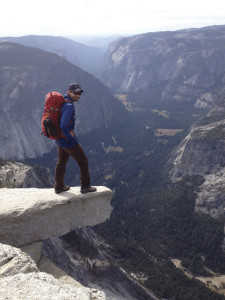 When asked what the most important lesson was he learned in the liberal arts program at St. John’s College, the response from Sierra Prep Academy (SPA) Dean of Students Eli Ferbrache was, “There are books out in the world, and I can read them.”
When asked what the most important lesson was he learned in the liberal arts program at St. John’s College, the response from Sierra Prep Academy (SPA) Dean of Students Eli Ferbrache was, “There are books out in the world, and I can read them.”
The response was simple, but it is at the heart of what Sierra Preparatory Academy’s teachers are trying to accomplish as they prepare the curriculum for the inaugural year.
In essence, books, ideas and challenging education are not for the elite alone. All students can be guided to the realization they can gain understanding, and, with practice, they can do so independently. For example, Dr. Darryl Orletsky has predicated his entire natural philosophy curriculum at SPA upon the goal of enabling students to be independent thinkers, with the ability to collect data from disparate elements and create meaningful synthesis.
In the ed biz, the buzzwords are critical thinking. But it all comes down to one important notion, which is we must never underestimate a student’s ability to thrive in the world of difficult books and ideas.
Students not only crave challenge, but they also thrive because of it. So, it is the job of teachers to relinquish authority, and help students accept the responsibility for their own education. This is precisely why we employ the Socratic method at Sierra Prep, and why our classes are seminar-style, in which students struggle together to understand, not merely know, the world around them.
C.S. Lewis emphasized in his book An Experiment in Criticism that the value of a book is not in the way it is written, but in the way it is read. One might read Agatha Christie mysteries analytically and gain deep insight into human behavior, but read Shakespeare superficially, gaining nothing. In other words, students cannot be passive learners. As learners, they must engage the world on their terms, trusting in their sound judgment, which takes years of patient, courageous work to develop.
If there is one thing I admire most about the faculty of Sierra Prep, it is their boundless intrepidity. They are truly fearless in their pursuit of understanding, and it is their strength and experience that will serve our students well. Teachers must not profess, but model what it means to be a learner, and Sierra Prep is fortunate to be guided by so many excellent model scholars.
Like the entire faculty, Lee Willcockson, one of our natural philosophy teachers, has a truly adventurous spirit and eschews fear in favor of curiosity and the satisfaction of achievement. He leads students by example, not by empty lecturing.
Mountain climbing, one of Lee’s many notable avocations, is the perfect metaphor for what we do as learners at Sierra Prep, which is why the symbol of the mountains is so prominent in our logo. Once atop the mountain, basking in the splendor of accomplishment, we can look further and farther, beyond the murky depths.
…
Mea Culpa: Following the last article about our faculty and staff, I received several responses specifically related to the experience of one of our board members who felt he had finally come to an understanding of Newtonian physics by flinging himself out of a plane.
I will readily admit that my scientific summary was imprecise, and as a former physics and chemistry teacher, I should know better. One respondent even hurled the word hermeneutic at me, but fortunately I ducked just in time.
Admittedly, it is very difficult to fully explain the physics of skydiving in a very short newspaper article, but I maintain the following: 1. All other variables being equal, objects do, in fact, fall at the same rate. Galileo was right. 2. Experience outside of the classroom is necessary for truly understanding the world at large, whether one uses a hermeneutic or not. 3. Skydiving is more complicated than it looks, which is why I admire so many of the Sierra Prep faculty for having the guts to try it.

